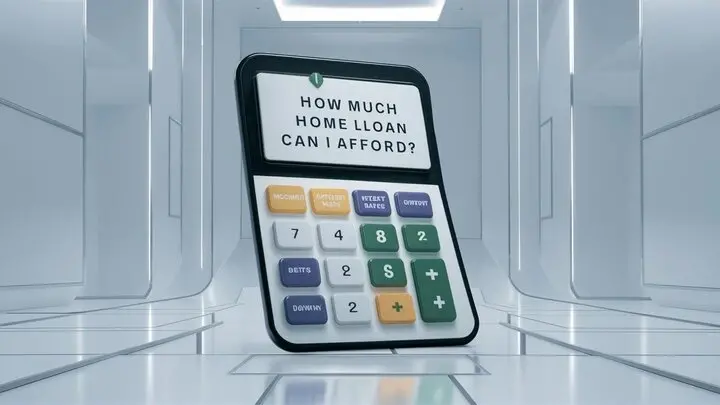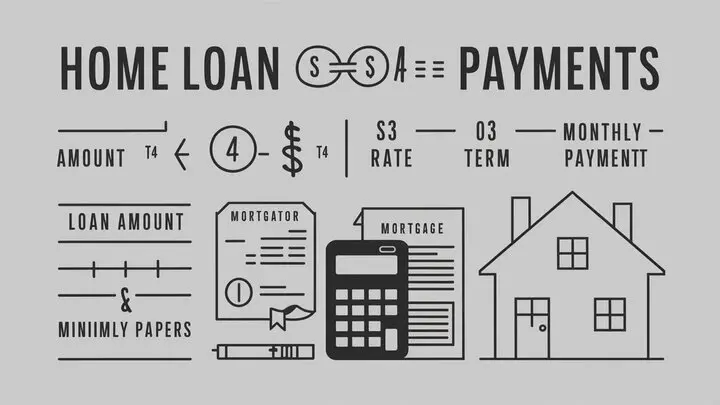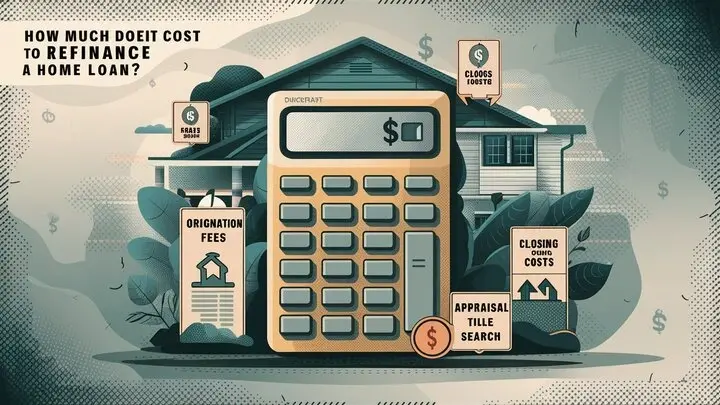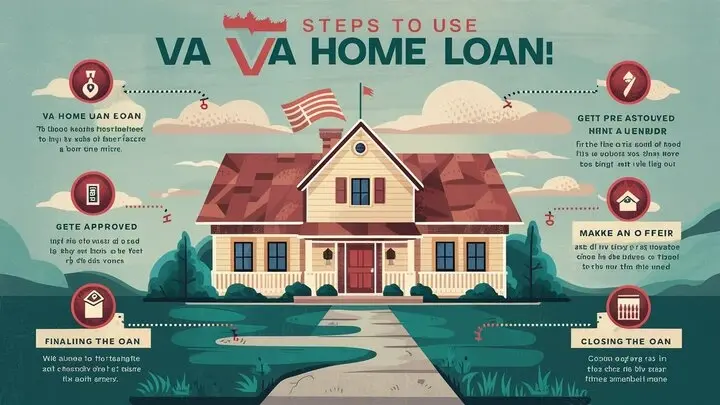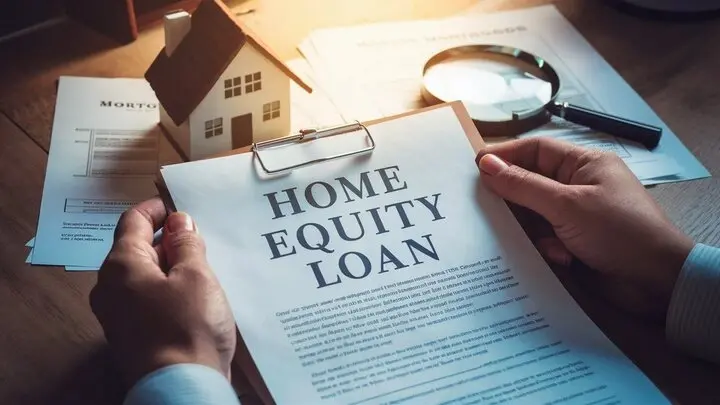-
Posted on: 23 Aug 2024
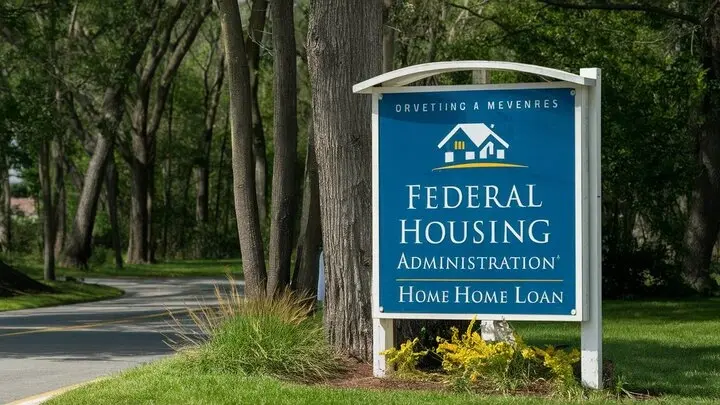
-
The FHA home loan program is backed by the Federal Housing Administration and can be advantageous for using a low down payment or weak credit. FHA loans need only 3. 5% down and the credit score requirements are less stringent compared to conventional loans. Here is the information that will help you to understand how to qualify for and obtain an FHA home loan.
FHA Loan Requirements
To be eligible for an FHA-insured mortgage, there are a few baseline requirements you’ll need to meet:
-
FHA Mortgage – as low as 3. 5% down payment – You need a down payment of 3. 5% for an FHA mortgage. This tends to make it a lot easier for buyers who can’t afford to come up with a 20% down payment. The remaining 96. 5% is constituted by the loan amount.
-
A FICO score of at least 580 is required for FHA – FHA has credit scores which they consider but they are higher than those of conventional loans. FHA loan allows you to qualify for a loan with a low credit score of 580 and below. The higher your credit rating is the lower your interest rate will be.
- DTI Ratio – It’s the amount of one’s gross monthly income qualify for which is not higher than the amount needed to pay the total monthly obligations including the proposed mortgage. This threshold is higher than the typical loan rate.
FHA Home Loans: How to Get Pre-Approved
However, it is prudent to undergo the FHA loan pre-approval process before beginning your search for a home.
Here are the key steps:
Check Your Credit Scores – You should obtain credit report from Equifax, TransUnion and Experian. Review all the reports to confirm that the details are accurate, and review your credit scores. Your scores can be obtained from the online services and your lender as well. This affords you the opportunity to build your credit if it is necessary before applying.
Save for Down Payment – FHA only demands a 3. 5% down payment. On a $300,000 home purchase, that’s only $10,500 required for down payment and closing costs. Spend money on these costs and also have a buffer or savings for these expenses in your bank. Also, do not forget to record where your funding came from as well.
Get a Pre-Approval – Work with a lender like a bank, credit union, or a mortgage company that offers FHA loans. Ensure that they are a FHA-approved institution so that they can easily handle your FHA mortgage insurance.
They will ask you to fill out a standard loan application form with information about your job, income, other sources of income, assets, liabilities, and credit details. This is used to securitize your loan and help the bank assess the amount of loan you are eligible for. Do not lie about anything on the application – this can hinder your chances of getting a loan in the future.
Gather Your Verification Documents – Depending on what you filled in the application, you will need to produce supporting documents to prove the details you have provided in the application. These are your W-2s, pay stubs, bank statements, investment statements, and your tax returns. Ensure that you have updated all the documents that are required for the processing to be fast.
Get Your Pre-Approval Letter – The last one that you should go through is the pre-approval letter from the lender. This letter identifies the loan amount and the terms that the applicant has been approved for. When making offers, it demonstrates to the sellers that you are a credible buyer.
Shopping for Your Home
Your pre-approval letter is your go-ahead to begin looking for homes in your price range. As you shop for homes and submit offers, keep these tips in mind:
-
Stay Within Your Pre-Approval Budget – You should only bid on homes that are at or below the pre-approval amount. Going a little beyond this number may cause problems when underwriting takes place in the future.
-
Get Pre-Approved for Extra – Many pre-approvals are calculated with the supposition of perfect circumstances. But what if a home appraises for less or your inspection uncovers unforeseen repairs needed? Getting pre-approved for about 10-15% more than your budget will enable you to have a leeway in such situations.
-
Move Quickly in Priced Competitions – The FHA loans are advantageous when the supply of homes is restricted in the market because the sellers are aware that the FHA pre-approval means that the deal will close faster. However, the need to be first with a competitive bid remains a priority.
- Be Cautious with Condos – Many condos have restrictions on FHA financing. Before making an offer on the condo unit, it is important to do a little homework to find out if FHA loans are allowed.
Financing Your FHA Loan
Once the offer has been accepted, you get to the closing stage of your FHA loan. Here’s how it goes:
The home undergoes a complete underwriting process with the lender and receives the lender’s full approval. They simply confirm that you are still entitled to the loan amount as well as this specific home. The property also has to go through an FHA appraisal.
This is done by your lender who assigns the FHA case number – this locks in the FHA insurance that shields your lender, enabling them to provide the low down payment loan.
The last check of your employment, income, assets, and credit is done just before the closing. This entails the provision of bank statements that should not be more than thirty days from the date of closing.
At the final session, it is necessary to go through all the documents related to the mortgage agreement and the purchase of a house. Finally when all the procedures are over you get the keys!
Thus, the FHA loans offer a great chance for clients to buy a house with a minimum amount of money while they have bad credit. As long as you choose an FHA-approved lender and double-check your eligibility before bidding, you’ll be just fine. This helps in making the process run smoothly from pre-approval to closing.
Don’t wait! Call (888) 803-7889 and take charge of your financial future today!
-
